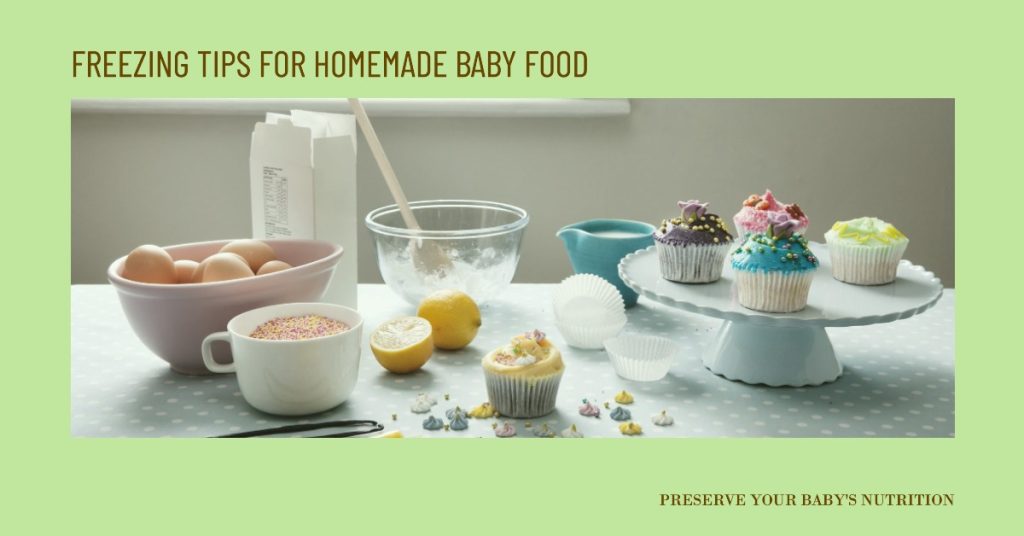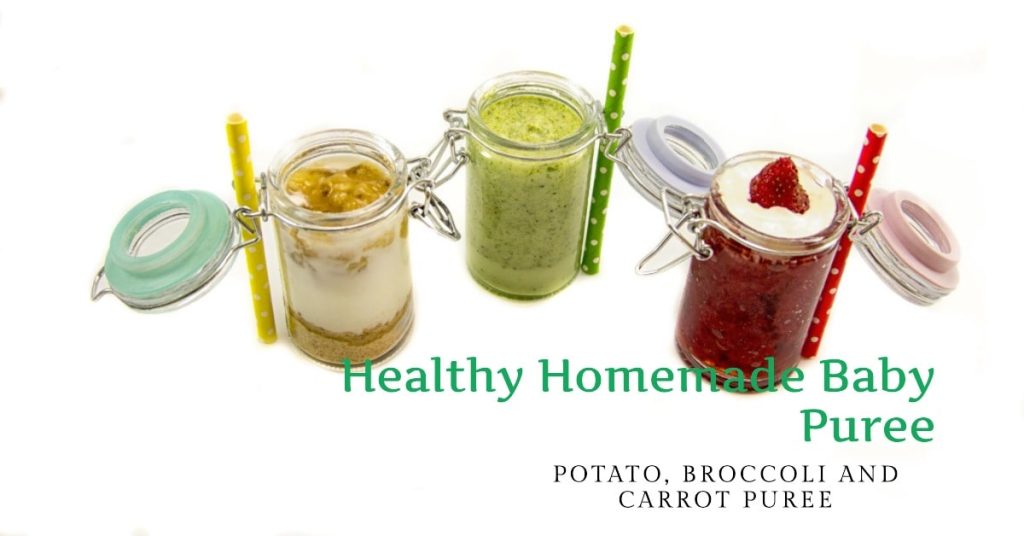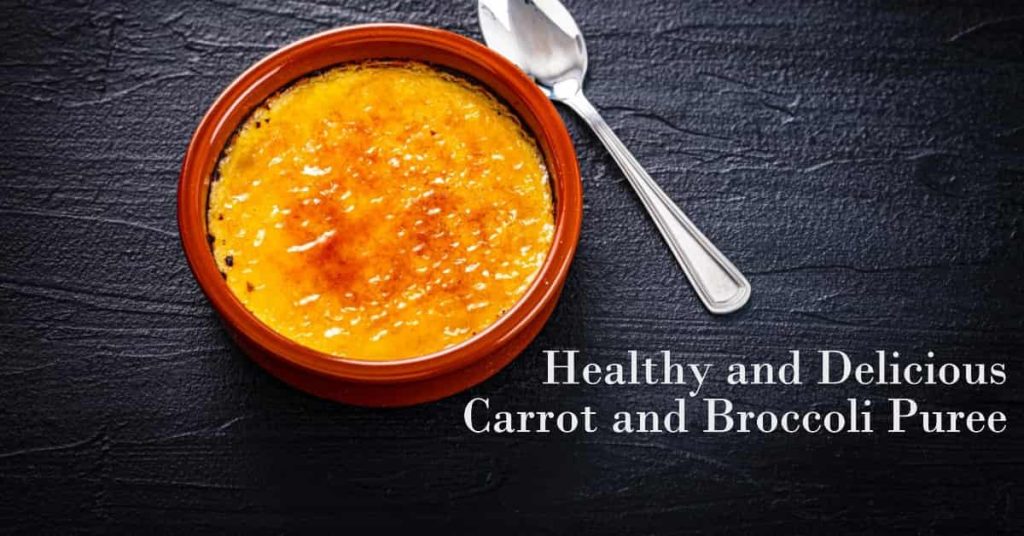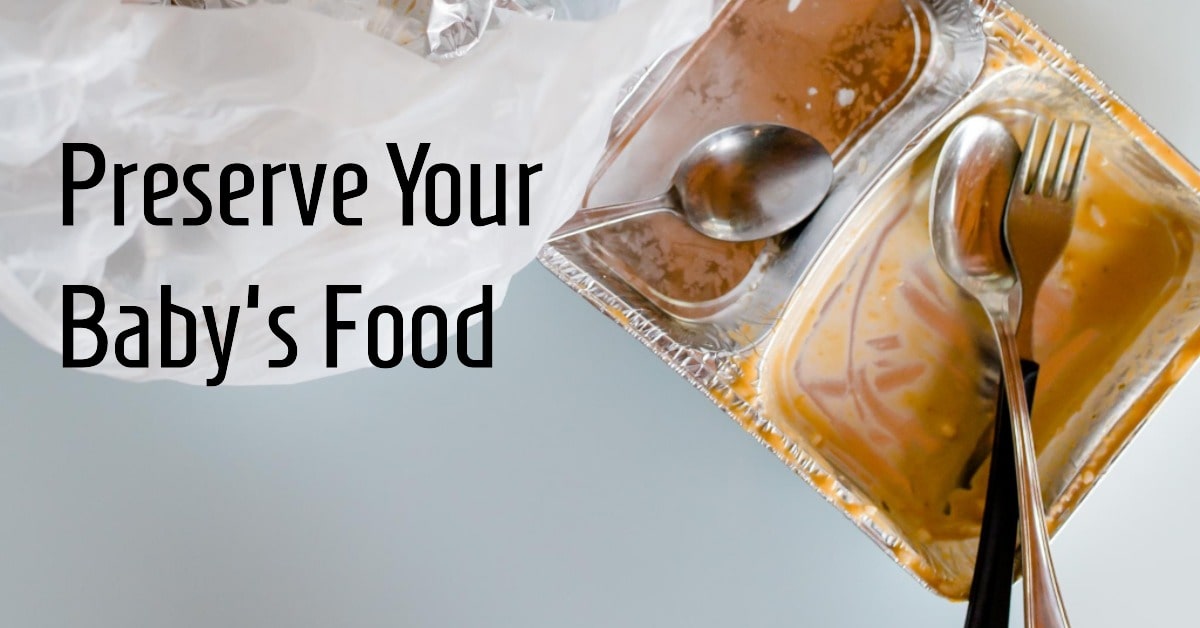Freezing baby food sometimes time and effort savign fo the parents. But how long can you freeze baby food? Baby food can be safely frozen for up to 3 months. It is best to freeze baby food in individual portions. This will help you to prevent waste any when thawing it out.
When freezing homemade baby food, make sure to use clean and safe containers or freezer bags, label the containers with the date and type of food being stored, and place them in a freezer set at 0°F (-18°C). Once ready for use, transfer frozen baby food into the refrigerator for 24 hours before serving it to your child. Be sure not to refreeze or reheat any leftover foods as this may cause bacteria growth which could lead to illness.
As long as the baby food is kept at a consistent temperature below zero degrees Fahrenheit and stored properly, it should remain safe for consumption until its expiration date.
How to Store Homemade Baby Food in a Freezer

Storing homemade baby food in the freezer is an easy and quick way to save time and money. Make sure that you use airtight containers to store your homemade baby food, such as plastic or glass jars with tight-fitting lids. It’s important to label each container with the date it was made along with the ingredients used.
When freezing larger portions of baby food, divide them into smaller amounts before storing them in the freezer so they will be ready for immediate use when thawed. Additionally, make sure that you place your stored baby food towards the back of your freezer where it is coldest and most stable; this will help preserve its freshness over a longer period of time.
What Baby Purees Can You Freeze?

Many types of baby purees can be frozen to preserve their freshness and nutritional value. Here are some common baby purees that can be frozen:
Fruit Purees:
- Apples
- Pears
- Peaches
- Bananas
Vegetable Purees:
- Sweet potatoes
- Carrots
- Peas
- Butternut squash
Combination Purees:
- Mixed fruit and vegetable blends
Meat Purees:
- Chicken
- Turkey
- Beef (make sure it’s finely pureed for younger babies)
Legume Purees:
- Lentils
- Chickpeas
When freezing baby purees, consider the following tips:
- Use airtight containers or ice cube trays to portion out small amounts.
- Label containers with the date to keep track of freshness.
- Remove as much air as possible to prevent freezer burn.
- Freeze in small portions to make it easy to defrost only what you need.
- For fruit purees that may brown (like apples or bananas), consider adding a bit of lemon juice to maintain color.
Always follow proper hygiene practices when preparing and storing baby food. It’s also a good idea to consult with your paediatrician before introducing new foods to your baby’s diet, especially if there are concerns about allergies.
How Long Are Homemade Baby Purees Good For?

Homemade baby purees are a great way to provide your little one with fresh, nutritious meals that are tailored specifically for their taste and dietary needs. But how long will these homemade meals last in the fridge? The answer depends on several factors including the type of food used, how it was prepared, and how it is stored.
Generally speaking, most simple vegetable or fruit-based purees can be kept safely in the refrigerator for up to 3 days as long as they have been properly handled and stored. If you want to extend their shelf life further then you can freeze them for up to three months
– just make sure to defrost them thoroughly before serving. When making meat-based purees, however, it’s important not only to refrigerate them within two hours of preparing but also to use them within 48 hours afterwards.
This means that if you’re going all out and batch cooking multiple servings at once then only prepare enough for a couple of days worth at a time rather than storing large batches in the fridge or freezer which could potentially cause food poisoning if left too long without being consumed.
What Baby Foods Shouldn’t You Freeze?
While many baby foods can be successfully frozen, there are certain types of foods that may not freeze well or may experience changes in texture that make them less appealing. Here are some examples:
Dairy-based Purees:
Purees that contain a high amount of dairy, such as yogurt or cream-based mixtures, may not freeze as well. They can separate or become grainy when thawed.
Cereal or Grain-based Purees:
Purees that are primarily made with grains or cereals, such as oatmeal or rice cereal, may become mushy or lose their intended texture when frozen and thawed.
Egg-based Purees:
Purees containing a high proportion of eggs may experience changes in texture and become rubbery when frozen.
Leafy Greens:
Vegetables with a high water content, like lettuce or spinach, can become limp and lose their crispness when frozen and thawed. However, they can still be included in cooked and blended dishes.
Certain Fruits:
Some fruits with high water content, such as watermelon or cucumber, may have altered textures after freezing. However, they can still be used in smoothies or other blended preparations.
Foods with High Water Content:
Foods with a very high water content, in general, may experience changes in texture when frozen.
Always consider the specific characteristics of the food you’re planning to freeze. Some purees may separate or change in texture when thawed, but they can still be safe for consumption.
It’s a good idea to experiment with small batches first and observe the results. Additionally, for foods that are challenging to freeze, you may consider adding them to dishes after thawing or using them in fresh preparations.
Does Frozen Baby Food Lose Nutrients?
When it comes to baby food, fresh is usually considered best. But what about frozen baby food? Does freezing affect the nutrient content of fruits and vegetables?
The answer may surprise you. When fruits and vegetables are frozen, their nutritional content remains relatively unchanged. Vitamins A and C may decrease slightly due to oxidation, but not significantly enough to be of concern for a healthy infant who eats a variety of foods.
Frozen produce also retains its fiber content, which can help promote regularity in babies and toddlers alike. The biggest benefit of using frozen produce as opposed to canned products is that there’s no need to add salt or sugar, so you don’t have to worry about your little one consuming unnecessary additives.
Additionally, many people find that frozen fruits and veggies tend to taste better than canned varieties because they’re flash-frozen shortly after being picked from the farm—preserving the flavour at its peak ripeness.
Ultimately, when it comes down to choosing between fresh or frozen baby food for your kiddo’s meals — both options offer a good amount of nutrition! However, if time isn’t on your side or if price points are an issue then opting for high-quality organic frozen fruit and veggie purees can be just as nutritious as fresh while still providing all the vitamins & minerals needed during infancy stages & beyond!
How Long Does Homemade Baby Food Last At Room Temperature?
Homemade baby food should not be left at room temperature for an extended period, as bacteria can multiply rapidly in food that is not stored properly. It’s recommended to follow safe food handling practices to ensure the health and safety of your baby. Here are some general guidelines:
Immediate Consumption:
If you’ve just prepared homemade baby food, it’s best to serve it immediately or refrigerate/freeze it promptly.
Room Temperature Storage:
Ideally, perishable homemade baby food should not be left at room temperature for more than 2 hours. In warmer temperatures (above 90°F or 32°C), this time is reduced to 1 hour.
Make and Freeze Baby Puree (5m+) , in collaboration with Nestor Avenue| freezing Baby Food |
Conclusion
This blog post has provided a comprehensive overview of freezing baby food. From the best containers to use, how long they can be frozen safely, and tips on reheating frozen baby food, this post has offered valuable insights into an important topic for parents. With all this information, parents can now confidently freeze their homemade or store-bought baby food to provide their little ones with nutritious and healthy meals for months to come.



